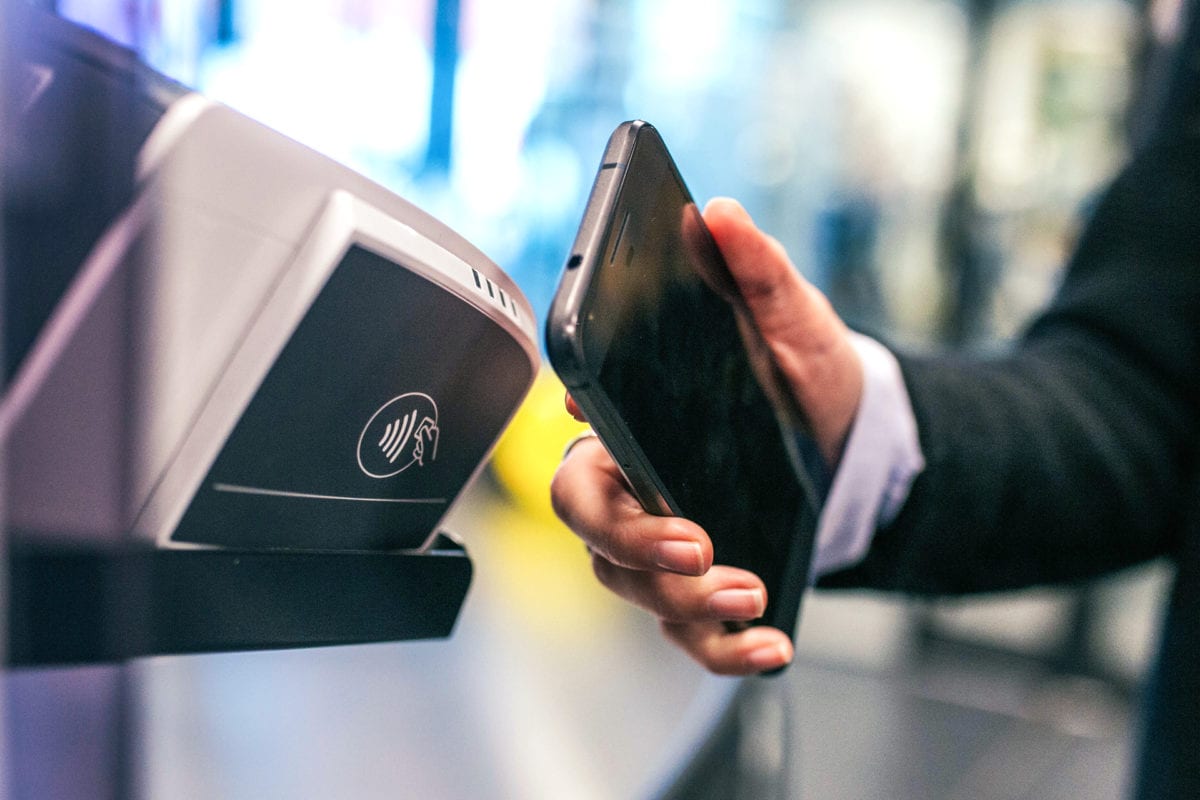The popularity of “cashless” transactions with customers doesn’t appear to be slowing down – nothing lessens the headache of waiting in a drive-thru line than seeing the cars ahead of you using the tap function on their smartphone or credit/debit card. Mobile banking also saves many from the headache of visiting a bank in person (when was the last time you waited in line for a teller?). More and more, technology is changing the way we do business, oftentimes making things much simpler. But for those without the means or technology, the push towards the convenience of going cashless restricts some people from completing simple transactions, especially when some businesses start catering specifically to those with the tech.
The digital economy is being built up as the wave of the future, with cashier-less Amazon Go convenience stores in Seattle, Chicago, and San Francisco, along with Atlanta’s Mercedes-Benz Stadium, and numerous retailers across North America and Europe. While it may seem to make things simpler for many, there are still those who lack the means, or the desire to pay digitally. Since this could potentially hinder a significant part of the population without bank accounts or credit cards, the push towards exclusively cashless transactions is seen by some as classist.
In 2019, the city of Philadelphia passed into legislation a city ordinance affecting the entire city – that save for some establishments like parking garages, all businesses are required to accept cash for the sake of equality. Same year in New Jersey, a bill passed with overwhelming support from state legislators that would make it illegal to run a cashless store in the state. “Many people do not have access to consumer credit, and any effort by retail establishments to ban the use of cash would be discriminatory towards those people,” said Rep. Paul D. Moriarty, one of the bill’s main sponsors. “The U.S. dollar is legal tender and should be accepted at any retail establishment in New Jersey.”
While very compelling arguments have been made in these cases for the sake of equality, the proprietors of these businesses have a different perspective. The primary benefit of going cashless is reducing the risk of robberies, seeing as how there would be no physical cash to take. Not to mention the fact that going fully digital can mean savings on employing cashiers (a move that proved to be unpopular with some customers.
From a consumer perspective, it’s a little more complicated. Philadelphia and New Jersey attract a lot of tourists who, for the most part, use physical money for transactions like food, general shopping, or souvenirs. However, there’s a portion of customers who enjoy the “tap and go” type of contactless payment that makes shopping lines move faster. And while those payments will still be accepted under these new laws, some observers – particularly in the U.S., where many free-market enthusiasts believe businesses should be free to operate however they choose – are apprehensive about the government dictating what a business must accept as payment.
Whether the current cashless trend will continue or not, some politicians already have their minds made up. William Greenlee, a Philadelphia City Councilman, expressed his views against it. “Most of the people who don’t have credit tend to be lower income, minority, immigrants,” he said. “It just seemed to me, if not intentional, at least a form of discrimination.”
Although it makes sense that a digital economy could shut out the economically disadvantaged, trends show that cashless payments are on the rise. According to a 2018 Pew Research Center Survey, the respondents who admitted they did not pay with cash in the past week increased from 24% in 2015 to 29% in 2018, and continue to rise in recent years. Despite the new legislation affecting cashless establishments, expect this to be a hot-button issue in the coming years as more customers opt to go digital with their payments.
Alex Correa | Contributing Writer




















